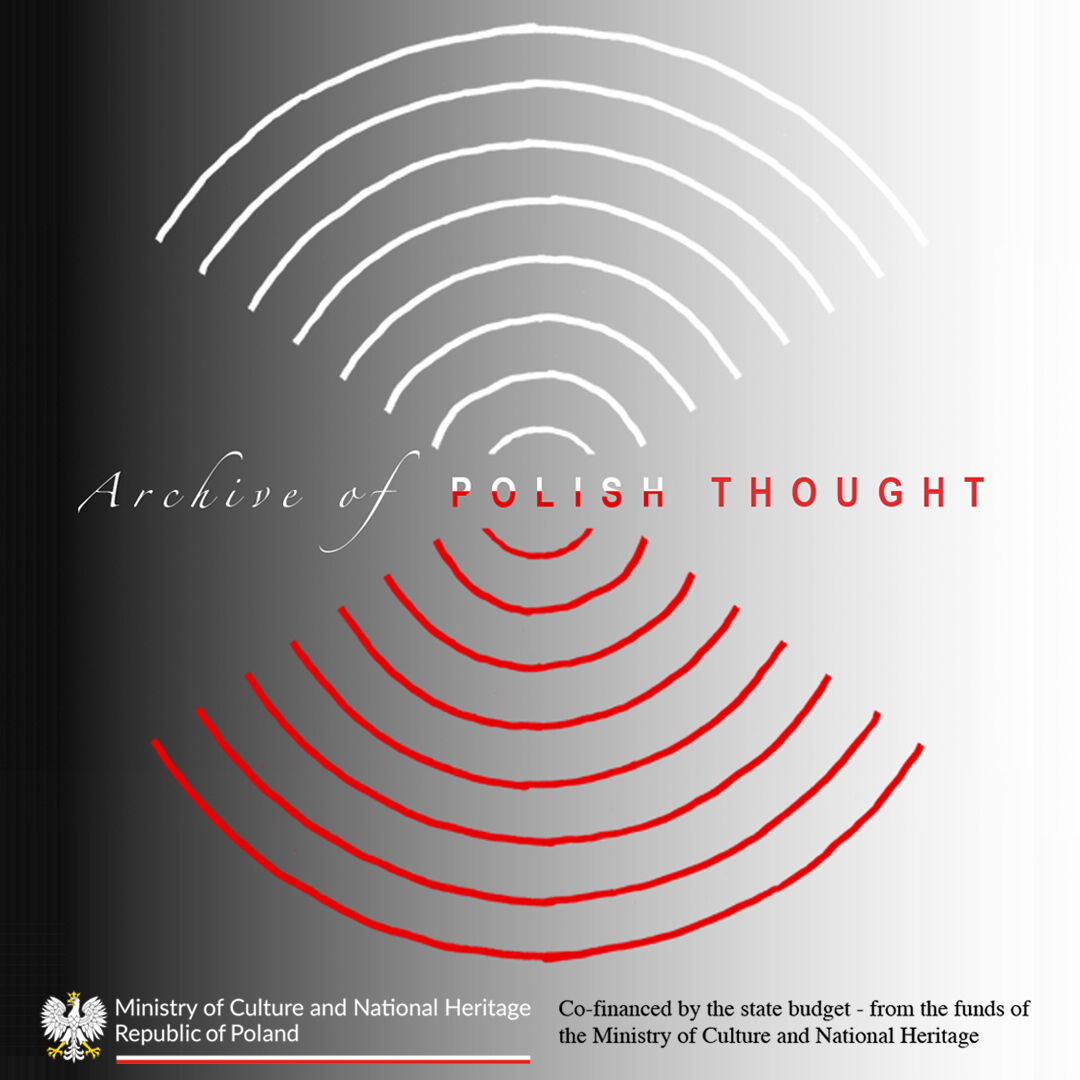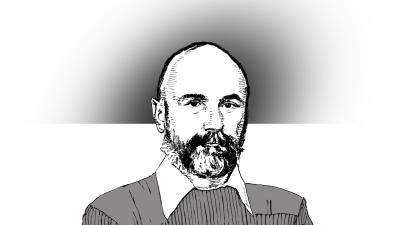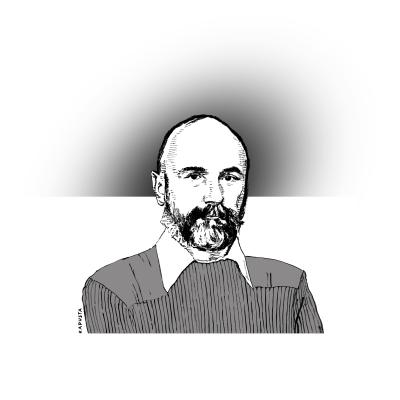The Shape of Polish Metaphysics [1978]
Before I answer the question of what I believe Polish spirituality to be, I must explain what I understand by spirituality. Spirit is what exists in a person that is not subject to the laws of nature; it is sovereign in relation to nature and, as such, operates freely - making choices in and of itself, and being responsible for those choices. Spirit, as understood in this way, is, of course, something different from the psyche, which, as we have repeatedly seen, is part of the natural order, subject to its laws, and can therefore be the subject of natural science. The old philosophical distinction between spirit and soul has not only not lost its significance in modern times but has become even more evident in light of the successes of science in describing the human body and psyche.
It seems to me that the spirit is what religion is primarily about in man. If, as naturalists want, the spirit did not exist and man possessed only the soul, religion, and certainly the Christian religion, would lose its meaning. For the meaning of religion is expressed in the free act of man choosing between the call sent to him by God and passive submission to nature.
When I think of Polish spirituality, I cannot, of course, forget that spirituality is something universal and essentially the same for all people and, therefore, for all nations. Thus, for me, the question about Polish spirituality is more of a question about the awareness of metaphysical freedom and the associated responsibility, as well as a question about the form that the work of the spirit has carved out in Polish matter. Awareness of freedom is indeed essential for the work of the spirit; the human form is the result of that work. I believe that the awareness of freedom is strongly present in Poles and that the Polish form is beautiful. The Polish form is that of a righteous person, someone who, through persistent effort of will directed towards the good, in constant struggle with their own negative inclinations, has accumulated a spiritual capital that is not easily exhausted. I do not want to indulge in mythomania and claim that Poles, unlike other nations, are virtuous people; I only believe that such is the Polish ideal of developed spirituality.
Poles hold the conviction that spiritual life, in its essence, is practical. Therefore, they are not inclined towards intricate theological speculations. Their knowledge of the Bible can be superficial, their religious literature is sporadic, and generally not independent. For this reason they are at times accused of lacking a metaphysical instinct. However, I’m not sure if that accusation is justified. While they may not believe in the possibility of intellectually seeking God, they do proclaim the necessity of action guided by religious intuition.
It might be interesting to compare Polish spirituality with the entirely foreign to it spirituality of Dostoevsky. Dostoevsky’s personal encounter with Poles took place in the Tsarist penal servitude. Dostoevsky writes about the Poles there with a mixture of respect and dislike. Dostoevsky does not understand the Poles, and as seen from his writings, he cannot understand them. Dostoevsky’s spirituality is intellectual. His characters willingly engage in conversations about God anywhere and everywhere. They are imbued with metaphysics. However, practically little results from this metaphysics. It does not influence their behaviour. Alternating between nobility and wickedness, they perpetually experiment on the border of good and evil, retreating as much as advancing. They lack that systematic pursuit of God that builds a person and is only possible when one trusts more in ethical intuition than intellect. They are filled with despair - the despair of the intellect, which, in its quest for the absolute, tries to transcend its limits. Their moral failures are failures of hubris. They believe they can ascend to God through thought. They forget that if a person rises upwards, it is not through intellectual wrestling with themselves but through constant exertion of will, overcoming natural and often evil instincts. When Dostoevsky’s characters are good, they are not good despite themselves but with a goodness that Kant did not value - a natural and instinctive goodness. Therefore, Dostoevsky’s saints are generally seen as fools, and an intellectual can only be a mad demon raging in solitary despair. To appreciate Dostoevsky’s religiousness more than Polish religiousness, one must fetishize intelligence, which can easily lead to the belief that a frenzied fiend stands spiritually higher than a simple and righteous man - a belief entirely contradictory to the Gospel.
A favourable climate for the development of spirituality is created by Polish individualism. Individualism does not allow the creation of a false entity, such as the collective, and thus makes it possible to avoid a number of idolatries. In hard times when religion is being exterminated, thanks to individualism, a considerable space can be preserved where there is room to store the torch of faith. Another characteristic of Poles that is beneficial to the development of spirituality is their resistance to associating goodness with success. God has sent us many opportunities to acquire this resilience so necessary for faith.
Does the Polish form I am writing about really live in the Poles? I believe it does to a high degree. Eyewitnesses who have come into contact with Poles in difficult existential situations say they are capable of exceptional fortitude, courage and solidarity. Whether in the German prisoner-of-war camps or in other places where shared suffering united Poles with other people, we had no reason to be ashamed.
I don’t think that much has changed in this regard today. A characteristic figure that comes to my mind is Stefan Kisielewski. To be honest, I’m not always impressed by the intellectual output of Kisiel; I believe that in his writing, he can be frivolous at times, and his analyses may lack seriousness. However, Kisiel takes matters of the spirit seriously. He ridicules everything, he always doubts, but he has some kind of daemon he listens to. Kisielewski is like a contemporary Polish Socrates.
I wrote that the essence of Polishness and, in fact, any spirituality is the experience of metaphysical freedom - the freedom to choose between natural and supernatural values. When this experience does not exist, spirituality fades away. Therefore, the sense of freedom is that delicate plant that most needs to be nurtured and protected to keep faith alive. It is essential to oppose all objectifying concepts of humanity, concepts that leave no room for freedom. The most dangerous among them are certain socio-political doctrines, as well as the thinking induced by science. Due to the influence of science, there is a growing belief that man is a machine entirely subject to the laws of nature. This way of thinking has become so deeply ingrained that even those who try to resist it often unwittingly fall into its deceptive traps. This is evident in the case of Miłosz, who, in his struggle against science, proposes old superstitions in place of scientific ones. However, science is too significant a challenge for humanity to be simply rejected. Fidelity to truth requires us to clear-headedly examine the ruins that science has left in the place where a world of old religious beliefs once existed. From this world, we can only preserve what is sacred and enduring. The rest should be discarded as unnecessary ballast. In this challenging situation, Polish spirituality provides us with solid support. It preserves what is at the core of the Gospel - the action of a free human being, sovereign in relation to nature and beyond nature, seeking God. It encourages the building of the human spirit that makes use of its freedom through the acts that create it. Such a religion cannot be harmed by science. After all, science does not provide prescriptions for what to do; it is only fit for description. The realm of action eludes its greedy grasp, and furthermore, it itself becomes engulfed by the free action of a scholar seeking truth.







Comments (0)